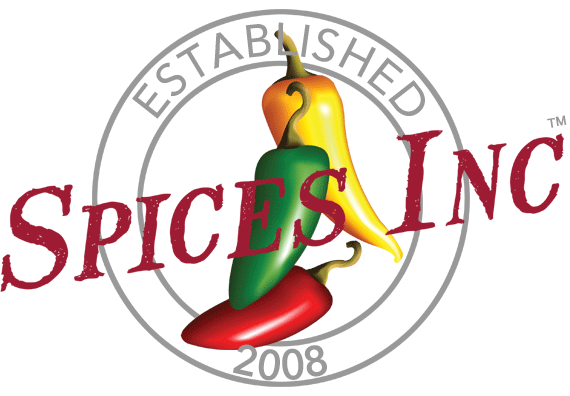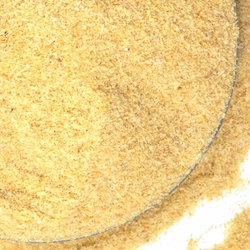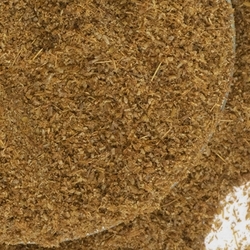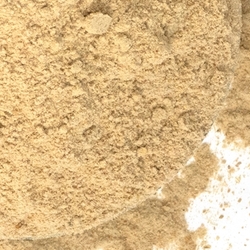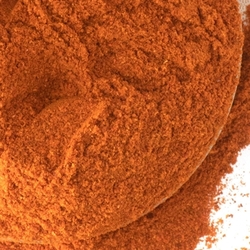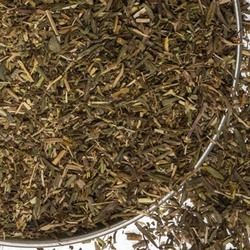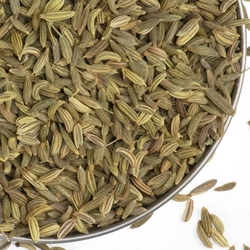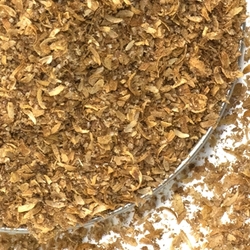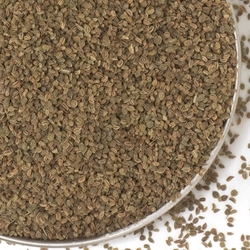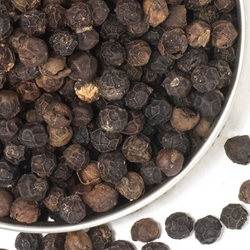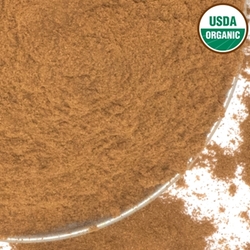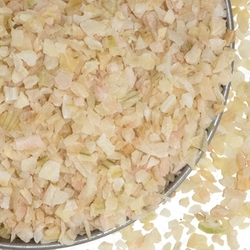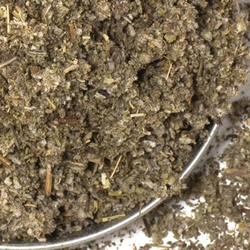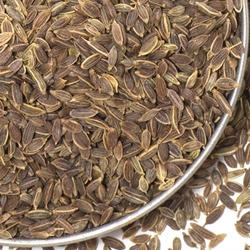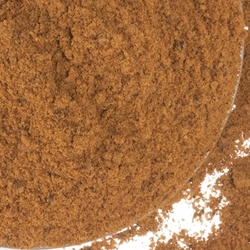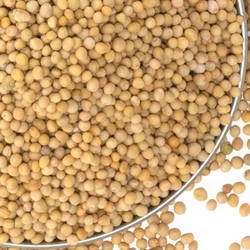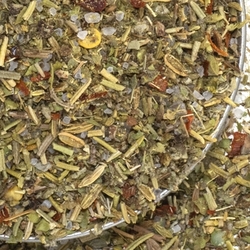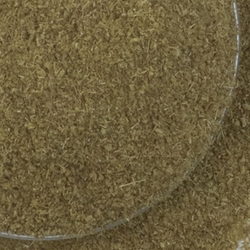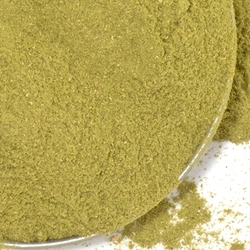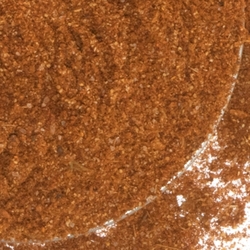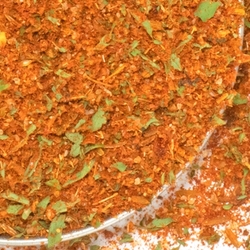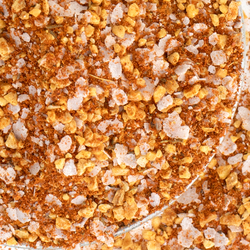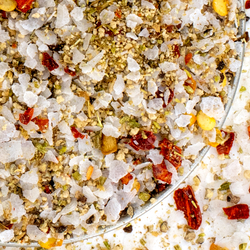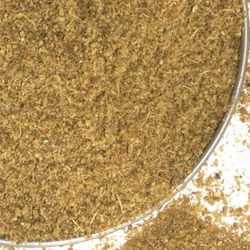Sausage Spices and Seasonings
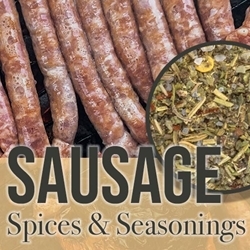
Sausage Spices and Seasonings
Sausage making is one of the earliest known ways to process meat in mankind’s history. The Sumerians made sausage approximately 5,000 years ago; it was a way to use all edible parts of an animal and create a preservable product to guard against lean winters. Salt was the main seasoning and preservative and it still plays an important role in sausage today. It was even named for salt, derived from the Latin word salsicus, or “seasoned with salt”.
When you make your own sausage, you’re in control. You can use any meat you want. You can find sausages that are made from duck, turkey, deer, and beef. A vast majority of the sausage in the US is made with pork, and it’s best if the pork—or any of the meat you’re using—contains approximately 20-30% fat. A boneless pork shoulder roast or Boston butt roast are great cuts that will get you near this fat percentage; if you want to boost the fat content you can add a little pork belly or duck fat to the meat grinder. As for salt, start with 1/2 Tablespoon (9 grams) of salt for every pound (453 grams) of meat. The amount of salt you’ll need may go up depending on what kind of sausage you decide to make.
Fresh sausage is the easiest type of sausage to produce. It can be loose or stuffed into a casing, and it is meant to be eaten right away.
If you are looking to extend the shelf life of a sausage, they can be smoked, cooked, fermented, semi-dried, dried, or mold ripened. These all have different levels of moisture, different levels of shelf-stability and refrigeration requirements, and specific methods of production. Sausage styles often reflected the region in which they were developed, making the most of the available ingredients and environmental factors like heat and humidity. It’s important to know the requirements for the longer-storage sausage you want to make in relation to type of meat, environment, religious influences if any, and other determining factors, in order to ensure accurate measurements in your sausage and control for potential microbiological risks.
What sausages usually share is that they are highly seasoned, with salt as one of the main seasoning ingredients.
Even though sausages are highly seasoned, it’s important to keep sausage spices and herbs in balance with each other and to the flavors of the meat.
Whole Herbs and Spices
People often select whole spices when making sausages because they provide texture and are visually aesthetic. Please be mindful of the spices in question; smaller whole spices, like mustard or celery seed, add a fun pop of intense flavor but are not overwhelming. Some ingredients, like whole peppercorns or allspice berries, are large and can create an unpleasant eating experience. If you’re using large, whole ingredients, we recommend cracking them first. Smaller pieces are easier to manage. Some of the most popular whole herbs and spices used in sausage making are:
Ground Herbs and Spices
Ground spices blend seamlessly into the sausage meat. Because ground herbs and spices are smaller, they distribute through the meat evenly. They are less noticeably visible in the meat; what they lose in visual aesthetic they make up for in all-over flavor. Some traditional ground herbs and spices used in sausage making include:
These aren't the only ground or whole herbs and spices you can use in your sausage. You can try out new flavors in your sausage as you experiment with this style of home cooking. Working with unusual spices will help to expand your own personal palate as well.
What Seasoning Blends Can I Use in Homemade Sausage?
Premade sausage seasoning blends are a shortcut to great sausage flavor. You can practice making your own blends, or you can give some of our tried-and-true sausage seasonings a whirl! Some of our favorite blends are:
- Maple Sausage Seasoning
- Hot Italian Sausage Seasoning
- Sweet Italian Sausage Seasoning
- Andouille Sausage Seasoning
- Breakfast Sausage Seasoning
- Mexican Chorizo Seasoning
- Camp Fire Sausage Seasoning
- Merguez Sausage Seasoning
Our sausage blends were crafted with sausage in mind, but you can use other blends that aren't sausage-specific for equally delicious results. Make sure to add salt if necessary.
Should I Use Fresh or Dried Garlic in My Homemade Sausage?
If you’re making a sausage that you plan to cook and eat within a few days, use whatever garlic product you prefer. If you are making a sausage that’s going to cure, you might want to consider using a dried garlic product. Fresh garlic, unfortunately, spoils pretty quickly when it's chopped. Dried Garlic has the same incredible flavor and aroma, but since it’s already dried it doesn't spoil like fresh garlic does.
Should I Use Fresh or Dried Minced Onion in My Homemade Sausage?
This is basically the same question and answer as the garlic question above. Fresh onions will spoil much faster than Dried Onion. Choose fresh onions when making fresh sausage, and dried onions when making a cured sausage.
What Kind of Salt Should I Use to Make Sausage?
When making sausage you will want to reach for a high-quality salt, like sea salt or flaked salt. Standard, iodized table salt is not good for sausage making. The iodine treatment can impart an odd, metallic flavor to sausage, particularly if it’s cured. Choose a salt that is pure and untreated.
Salt doesn't just add flavor to the sausage, it will also help bind and preserve the meat. To test if the salt you want to use is high quality, drop a teaspoon of salt in a glass of clear water. Once the salt has dissolved, if your water is still clear then that is a good salt to use. If your water turns cloudy, you'll want a different salt. Cloudy water is indicative of a metal heavy salt that will alter with your sausage's pH level, which is important for longer-term preservation.
When you make your own sausage seasoning blend, weigh your salts when adding them to your sausage. Different types of salt, like flake salt and coarse salt, have different weights. A teaspoon of flake salt may not contain as much salt as a teaspoon of coarse salt, but weighing them guarantees the same measurement.
Sausage making has been part of American culture since colonial times and if they could do it then, you can do it now! With these herbs, spices, and seasonings listed above, we hope we have given you some idea of what you can use to make your sausage seasoning the best is can be.
